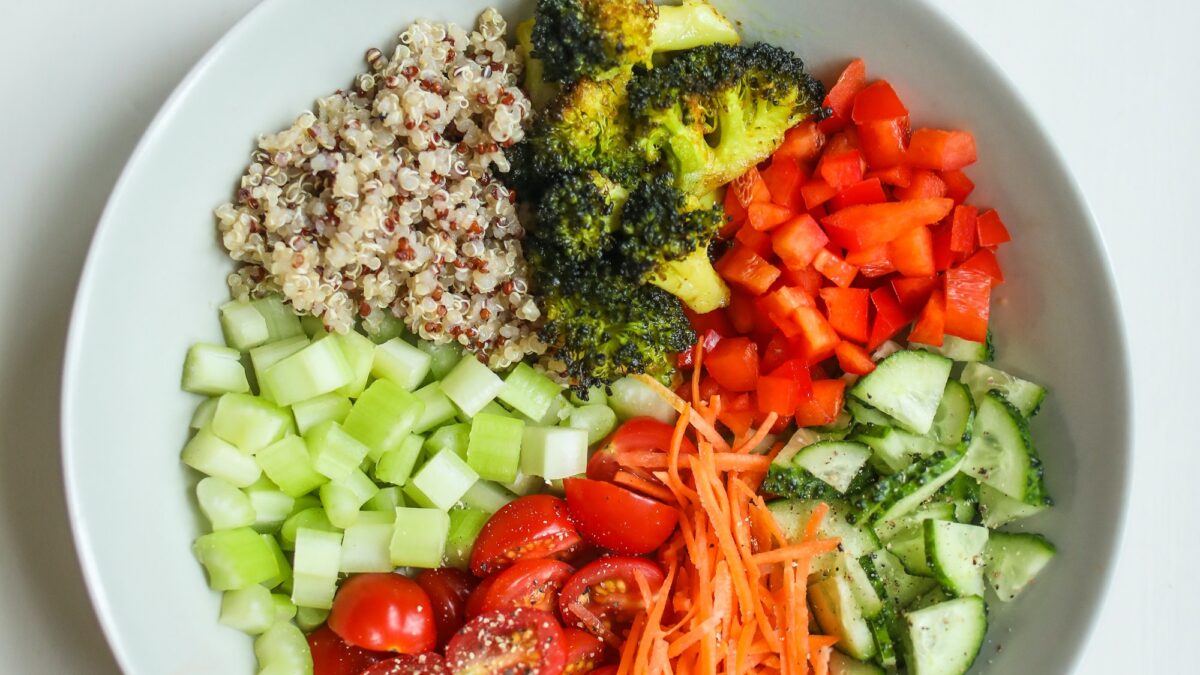A good diet shout supply just enough nutrients for growth, repairs and chemical processes, and give ample energy for daily task. The energy derived from food is measure in calories.
To maintain a stable weight, 15 calories a day are needed for every pound (0.45kg) of body weight — rather more for people doing physical work, and rather less for those who sit a good deal. Among adults in their most active years, between 19 and 50, men of average height and build need about 2550 calories a day, and average women about 1940 calories. Older people need fewer calories and growing children and adolescents need more. Many people, however, eat more than enough for their daily needs and have an excess store of body fat.
CARBOHYDRATES
Nutritionists now advise that about half the day’s calories should come from carbohydrates. Carbohydrates come in the forms of starch (complex carbohydrate) and sugar (simple carbohydrate), both of which provide 4 calories per gram (about 115 calories per ounce). Sugar, however, is something to be wary of — not natural sugars, for example the fructose and lactose in fruit and milk, because these are accompanied by valuable nutrients such as protein and vitamins. Refined sugar (sucrose) does not come in a natural package with other nutrients; because of this, the calories it provides are often called empty calories. Honey and syrup are virtually the same as refined sugar.
Starch is the form of carbohydrate to eat in greater quantities. Bread, cereals, oats, potatoes, grains, pasta, peas, beans and lentils are all high-starch foods which should be a regular part of the diet. Not many years ago, starchy foods were thought of as fattening; they were the first item to be cut by people wanting to lose weight. Eating less fat is a far healthier alternative — and makes a much bigger cut in calories.
PROTEIN
A healthy diet must include protein, but most of us eat far more than we need. About 20z (60g) a day of pure protein is enough; about one-fifth of meat is protein, and about one-tenth of bread. Like carbohydrate, protein provides 4 calories per gram. Animal protein — beef, lamb and pork, poultry and game, fish, and eggs, milk and cheese — is called complete protein because it contains the right combination of some 20 amino acids to make the protein accessible to the body. Proteins from plants are known as incomplete proteins; certain combinations are needed to make their protein available to the body. For example, pulses — beans, peas and lentils — should be combined with grains such as rice, or with cereals such as wheat.
FATS
Fat should provide a maximum of 35 per cent of the daily calories, not the present British average of 40 per cent. Fat, the most concentrated calorie source, provides 9 calories per gram. Cutting down fats will help to prevent obesity and heart ailments. It is not just reducing fat that improves the diet; the type of fat is also important. You should cut out as much as possible saturated fats, high amounts of which are in meat, milk and dairy produce, coconut and palm oil, and the hydrogenated vegetable oils in, for example, hard margarines. Saturated fats stimulate production of cholesterol which furs up arteries, impeding circulation and causing extra work for the heart.
Small amounts of polyunsaturated fat are vital for cell structure. This kind of fat is derived from vegetables, seeds, nuts and fish; polyunsaturated oils include corn, sunflower and sesame oil.
The third type of fat, monounsaturated fat, is present in large amounts in olive oil, rape seed oil (sold as vegetable oil), nuts and avocados, but is present also in smaller but significant amounts in all other fatty foods. Monounsaturated fats have not been linked with any harmful effects.
FIBRE
You should eat 18g (about 2/3 oz) of fibre a day. This is a lower figure than once recommended, because of a new method of analysis; fibre has a new name too — non-starch polysaccharides (NSP). Fibre can be insoluble or soluble. Insoluble fibre is found in whole-grain cereals, wholemeal bread and pulses. Soluble fibre is found in fruits and vegetables.
To increase fibre intake, eat brown rice rather than polished, and wholemeal bread rather than white; replace some meat with beans, lentils and other pulses, and eat good helpings of leafy vegetables and fruit daily. There is no advantage in exceeding the daily target; too much, or a sudden increase in, fibre causes discomfort.
VITAMINS AND MINERALS
The foods that provide protein, carbohydrates and fibre also give a plentiful and varied supply of vitamins and minerals. Take care about sodium (eaten mainly as salt), which can be a factor in high blood pressure. At the moment the average intake in this country is 3600mg a day. Nutritionists recommend a reduction to 2000mg (2g) a day — and just 500mg would probably be enough.
Related posts
 Healthy LifestyleIn Healthy Lifestyle
Healthy LifestyleIn Healthy Lifestyle Healthy Diet Food PlanIn Diet Plans
Healthy Diet Food PlanIn Diet Plans Planning a Healthy DietIn Healthy Lifestyle
Planning a Healthy DietIn Healthy Lifestyle Vegetable LasagneIn Recipes
Vegetable LasagneIn Recipes

